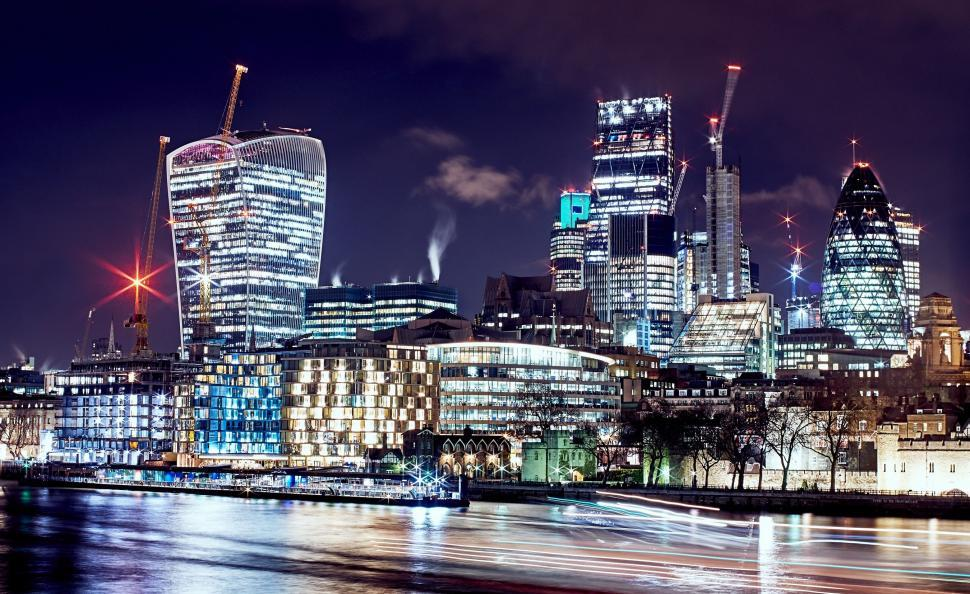UK economic slowdown despite august growth
- Sophie Brown

- Oct 11, 2024
- 3 min read
The UK economy grew in August, but the overall trend in recent months points to a slowdown, according to the Office for National Statistics (ONS).

A rebound in the construction sector, along with strong performance in accounting, manufacturing, and retail, helped the economy expand by 0.2% after stagnation in the previous two months. However, economic growth remains weaker than in the first half of the year, said the ONS.
These figures come as the government prepares for its upcoming Budget, which Prime Minister Sir Keir Starmer has warned will be "painful," with expectations of tax increases. Liz McKeown, ONS director of economic statistics, noted that growth in August was driven by sectors like accounting and retail, alongside a recovery in construction following a slump in July, thanks to new infrastructure projects. However, she emphasized that the broader trend shows slowing growth compared to earlier in the year.
Ben Jones, lead economist at the business group CBI, pointed out that many companies have paused hiring and investment while waiting for more clarity on the government's economic policies. PwC's chief economist, Barret Kupelian, added that sustained growth will depend on providing businesses, households, and foreign investors with greater certainty. Speculation is growing about what tax increases Chancellor Rachel Reeves will introduce, especially since the government has pledged not to raise taxes on "working people" and ruled out hikes in VAT, national insurance, or income tax.
The upcoming Budget will be the government's first major chance to outline its spending and tax priorities. However, it faces challenges such as high post-pandemic debt, elevated interest rates, and inflation that has only recently returned to normal levels. While Reeves plans to adjust borrowing rules to free up more funds for large-scale projects, this move won’t eliminate the need for further tax hikes.
On Friday, the chancellor reiterated that growing the UK economy is the government’s top priority, to "fix the NHS, rebuild Britain, and improve the lives of working people." The ONS tracks GDP growth monthly, but the focus is often on the three-month trend. Weaker performance earlier in the summer resulted in just 0.2% growth from June to August, compared to the previous quarter. After falling into a shallow recession at the end of 2023, the UK economy bounced back in the first half of 2024.
Focus on Investment
The new growth figures come ahead of next week's International Investment Summit in London, where the government will seek to attract billions of pounds in new investment.
Anna Leach, chief economist at the Institute of Directors, urged the government to shift the focus from the national debt to building the future economy. She emphasized that sustainable public finances and higher living standards depend on attracting investment, and both the summit and the Budget present key opportunities to clarify the government's plans.
Meanwhile, Spanish energy company Iberdrola, the owner of Scottish Power, announced on Friday that it plans to double its UK investment to £24 billion over the next four years. Scottish Power CEO Keith Anderson told the BBC that the funds will be used to expand the UK’s electricity grid, enabling more homes and businesses to connect to it. Anderson called on the government to speed up the planning process for infrastructure projects, noting that faster approvals would allow for more investment. He said, "If you make planning twice as fast, we will invest twice as much money."
The UK government aims to transition almost entirely to clean and renewable energy for electricity production by 2030. However, critics argue that the timeline is unrealistic and could lead to higher energy bills. Some residents, particularly in rural areas, have also raised concerns about the construction of new pylons, cables, and substations required for the energy transition.
Anderson, however, stressed that the recent spike in energy bills was due to volatile gas prices, and shifting to wind energy could lower bills over time.




